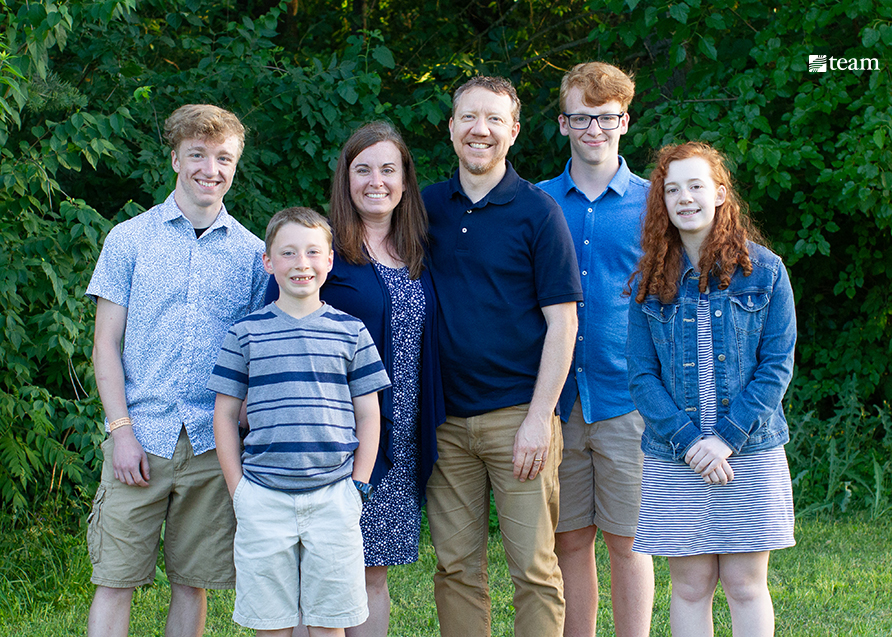
Becoming a Missionary
6 Reasons Why You Should Not Go Overseas
May 29, 2018
by Wesley Mills

Working for a missions agency, we get to assess, equip and deploy missionaries all over the world. When we assess them, we’re looking at more than skills and gifts; we look at motivations and reasons why someone wants to go overseas.
There are plenty of reasons why people go overseas, but not all of them are great reasons. Maybe the intention is pure, and we want to affirm genuine and holy desires. But we also want to steer those desires in ways that truly honor the Lord rather than fulfilling one’s own mission.
Some of the most popular reasons people give for wanting to serve internationally are also some of the most lacking. Below are six motivations that seem solid on the surface, but lack what it takes to thrive cross-culturally.
“I want to go overseas…
1. because I want to help people.”
Far and away, this is still the most popular answer people give for wanting to serve overseas. Mostly viewed through a material-laden lens, this motivation is more about being a savior than worshipping the Savior. The emphasis is on you “helping,” rather than going and serving and learning. It presumes “help” is needed, typically lacks a gospel-centered posture and usually is interested in being the teacher, not the one who’s taught.
2. because I think living overseas will be fulfilling.”
Maybe it will be. But this should not be the reason someone goes. If this is a motivation, it’s most likely that this person hasn’t met a cross-cultural worker before. There could be an aspect of fulfillment that comes. However, living overseas means learning a new language, adjusting to a new culture, feeling like an outsider, being misunderstood and possibly never seeing someone come to know Jesus. If you told someone that would be their experience, it would seem much less appealing and certainly less fulfilling. This motivation is more concerned with self-fulfillment than it is the fulfillment of their neighbor.
3. because God told me to.”
This one is tricky. It is masked in spiritual language and puts the ultimate fence around anyone who thinks to question it. Who would dare question God? And who would question someone if they said they heard from God? And yet, as an agency, we ask who has affirmed this call of God to go: the church, one’s community, other mentors? One may sense God’s leading to move internationally, but the blanket defense of “God told me to” is not enough. Typically, this motivation is rooted in a very individualistic call to go overseas. It’s unconcerned about the counsel, pushback and wisdom of the body of Christ.
4. because I want an adventure.”
Living overseas will be an adventure, but maybe not the one you want. It may require sickness and heartache and trouble. One may encounter doubt and tragedy and dark nights of the soul that you would never have elsewhere. The adventure most people want is filled with fun and new experiences and Instagrammable moments. But that vision is too small and motivation too weak for the weightiness of cross-cultural life. We dilute the Christian life when we talk about it as an “adventure,” rather than wrestling with the realities that lost people will be in hell, the effects of the fall, and ministry of reconciliation.
5. because I want to start a new life.”
This reason is also common. One of the last reasons to go overseas is out of dissatisfaction with one’s current situation. If life is challenging now with a familiar people, language and culture, who’s to say it will be easier living the opposite of that? Paul tells Timothy, “But godliness with contentment is great gain” (1 Timothy 6:6). To flee discontentment will only heighten the frustrations and hardships of life. There is a “holy discontentment” that is rooted in the effects of the fall and realizing we are living in the already, but not yet (1 John 3:2). But holy discontentment is different than earthly discontentment — mere dissatisfaction with the path of your life. If circumstances are constantly dictating your contentment, the added complexity of living cross-culturally will only amplify that.
6. because going overseas is more spiritual.”
There’s an old line of thinking that says immature Christians stay home and mature Christians go to the mission field. Crossing international borders does not make one any more spiritual than walking across the street does. This thought process is rooted in the work of missionaries being more spiritual than “secular” workers. But if we look at Jesus’ life, He held a pretty secular vocation in carpentry. Going overseas will expose your spirituality, but going overseas has nothing to do with one being closer to God or “more spiritual” than someone who sends missionaries from home.
So how does one discern pure motives for going? We all are broken, including our motivations. We all have ulterior motives and do things out of selfish gain. But, some practical questions to ask ourselves when thinking of serving cross-culturally are:
- Is going overseas about fulfilling a calling or about loving my neighbor?
- What missionaries have I talked with who have lived overseas, and what counsel have they given?
- Who has investigated my interest in serving internationally with me?
- Am I engaged in cross-cultural relationships now, and what am I learning from them?
Ultimately, the motivations listed above aren’t enough. None are deep enough or draw from the well of Christ enough. Some of them may be clouded in spiritual language, but they are not rooted in the love of God, obedience to God or love of neighbor. They are rooted in a mission that says God’s mission is about me.
But we know the mission of God is never about us. It’s about God. It’s about Jesus laying down the riches of heaven out of obedience to the Father and love for His image-bearers. It’s about His coming and becoming like us — fully human — and redeeming us so we could become like Him. This is the motivation that has carried missionaries for 2,000 years. And it will carry the rest until He returns.
Looking for even more resources on preparing for missions? Click the links below to access our library of tips.
Preparing for Missions Resources:
Related articles


